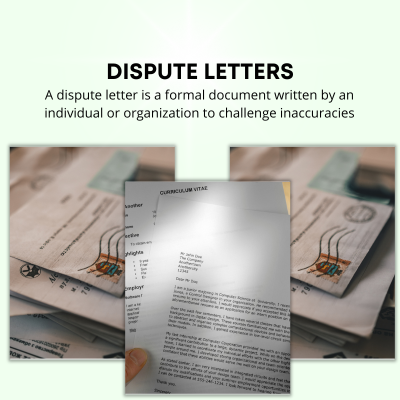
Eviction Dispute Letters
An eviction dispute letter is a detailed and formal document written by a tenant to contest an eviction notice issued by a landlord, property management company, or legal authority. This letter serves as the tenant's official response to the eviction notice, presenting arguments, evidence, and legal defenses to challenge the eviction and potentially prevent or delay the eviction proceedings.
The body of the letter then outlines the specific reasons why the eviction is being disputed. These reasons may vary depending on the circumstances of the eviction but commonly include:
- Disputing the Validity of the Eviction Notice: The tenant may argue that the eviction notice is invalid or improper, citing legal deficiencies such as failure to serve the notice correctly, lack of proper grounds for eviction, or violation of local landlord-tenant laws or regulations.
- Compliance with Lease Terms: The tenant may present evidence demonstrating their compliance with the terms of the lease agreement, including timely payment of rent, proper maintenance of the rental property, or adherence to other lease provisions. This can help refute any claims of lease violations made by the landlord.
- Mitigating Circumstances: The tenant may explain any extenuating circumstances or hardships that led to the alleged lease violations or inability to pay rent, such as financial difficulties, medical emergencies, or temporary disruptions in income. By providing context for their situation, the tenant seeks to appeal to the landlord's understanding and compassion.
- Requesting Negotiation or Mediation: The tenant may express a willingness to resolve the dispute amicably through negotiation or alternative dispute resolution methods such as mediation. This demonstrates the tenant's commitment to finding a fair and mutually beneficial solution while avoiding costly and time-consuming legal proceedings.
An eviction dispute letter in the context of collections is a powerful tool for tenants facing eviction and debt collection, providing them with a formal opportunity to challenge both the eviction and the validity of the debt

